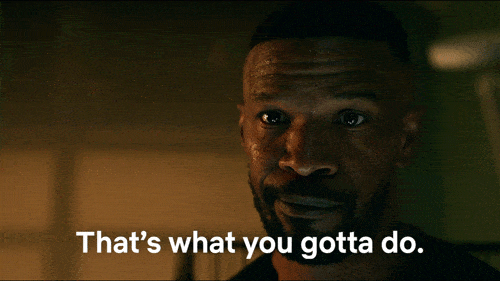- Resilient Reiner Newsletter
- Posts
- Boosting Your Riding Game: How Ian Fleming's 'Forced Boredom' Can Rev Up Your Saddle Skills
Boosting Your Riding Game: How Ian Fleming's 'Forced Boredom' Can Rev Up Your Saddle Skills
Boosting Your Riding Game: How Ian Fleming's 'Forced Boredom' Can Rev Up Your Saddle Skills

Howdy, Resilient Rider!
Have you ever watched a James Bond movie? I’m assuming you have. I thought they were the coolest thing ever when I was a kid. Turns out, the movies are based off of books written by Ian Fleming. I learned this past week what made Ian Fleming, the genius behind James Bond, such a prolific writer. He had a secret weapon, of course! Something called the 'Rule of Forced Boredom.'
Not the sort of spy gadget you were hoping for. But hear me out. I know this is practically anathema in our day and age, and this approach might sound unusual, but trust me, it has some surprising and effective applications when it comes to understanding our own psychology and improving our riding skills.
Fleming's method was elegantly simple yet incredibly effective. He'd lock himself in a plain, distraction-free hotel room. No fancy views, no enticing diversions—just him and his writing. In that environment, with no tempting alternatives, Fleming faced a straightforward choice: write or do nothing.
I relate to this personally, as when I really have to do something… especially if it’s something I don’t care to do… One of the things I’ve been known to do is turn my phone off. It’s simple. It’s effective. It’s my own version of giving myself the choice of “do the thing,” or “do nothing.”
Folks have been doing this for forever. I can remember the old school version of that was to just take the phone off the hook if you really needed to focus. But consider another context. Have you ever found it easier to study in a library instead of at home? What’s up with these changes in our environment impacting our focus? Let's delve into the fascinating psychology behind this approach.
Fleming's technique is a prime example of 'egonomics,' a ten dollar word for a concept where individuals shape their surroundings to steer behaviors towards desired outcomes. A.k.a. set the stage to make the right thing easy, and the wrong thing hard – just like in horse training.
Because nothing happens in a vacuum. We are interconnected with the other folks in our life, and our environment itself. Managing yourself so you take the actions you want to take to meet your goals isn't just about personal traits—it involves manipulating external factors that affect you. I know in my life, while I love having friends and family over to my house, sometimes I love meeting up out of the house to catch up so I’m not staring at my to-do list and pile of laundry when I just want to hang out with my friends.
Fleming was a master of egonomics, fine-tuning his life and surroundings to harmonize with his writing objectives. By eliminating distractions, Fleming made it significantly easier to concentrate on his writing. This underscores the potent influence of our surroundings on our ability to focus and improve.
In our modern world, overflowing with distractions, Fleming's approach becomes even more relevant for us as riders. We're constantly bombarded with stimuli that fragment our attention. Digital devices and social media amplify these distractions, making it challenging to stay focused in the saddle. Ever been to the barn and been bombarded with a call or text as you’re trying to focus on keeping your horse’s shoulders up? Or, with wi-fi and internet, on a bad weather day have you ever just stayed in the car, watching a Netflix episode in peace while it stormed around you and gave your horse the day off? Maybe you get too busy with barn chores to ride. Or, you get too distracted at home, and don’t make it out the door?

This challenge calls for a deliberate design of our environments. Just like Fleming opted for a plain hotel room, we must create physical and mental spaces conducive to deep riding practice. We need that focus in our daily training to make real progress. I used to ride at a barn where the arena was a short walk away from the barns and it always made me feel so focused and “apart” in the best way from the hustle and bustle of barn cleaning and horse grooming and more. Like the only thing in the entire world at that moment was to ride and be with my horse.
Now, since you probably can’t move your arena, some other things you could do involve using apps that limit social media use, turning on the “Do Not Disturb” setting on your phone when you mount up, setting up clutter-free riding areas, or carving out specific times for uninterrupted training. The core principle remains constant: by minimizing the allure of distractions, we enhance our focus and riding performance.
Fleming's approach also touches upon the concept of 'flow,' that magical state where we're completely immersed in our riding. In my work as a mental coach, we work a lot on focus to assist riders in entering that elusive flow state with their horse. By eliminating distractions, Fleming likely found it easier to enter this zone, where his skills and writing finesse flourished. Achieving this state is a goal many riders aspire to but often find elusive in a world brimming with distractions. What distractions sideline you? Are they at home? At the barn? What steps will you take to minimize them, and how will you adjust your environment to enhance your focus in the saddle?
Now, who's ready to put Fleming's 'Forced Boredom' to the test and take their skills to the next level?
Happy Trails,
Nicole Burnett
Reply